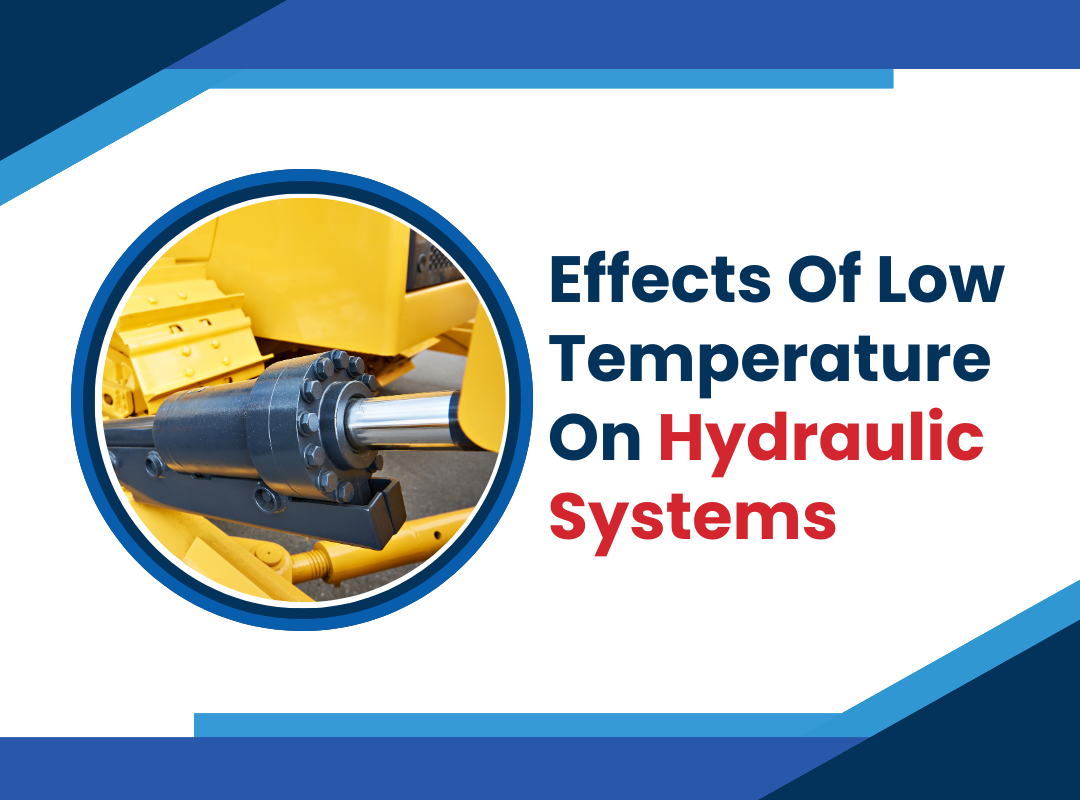The temperature plays a vital role in the functioning of the hydraulic systems. If the temperature rises to an extreme level, it fails the system. Whereas the hydraulic fluid loses its potential and becomes useless if the temperature drops below a considerable point.
So maintaining an optimal temperature in a hydraulic system holds much importance as it can affect efficiency and performance.
This article discusses the effects of temperature on hydraulic systems. You will find the effects of low and high temperatures in detail and the causes of heat generation in hydraulic systems. Now let’s get started.
Hydraulic Equipment
Elastomeric materials like rubber become harder and less flexible and, at some point, brittle in low temperatures.
That said, hydraulic equipment that consists of seals, mounts, hoses, and fittings made of rubber suffers when the system is exposed to low temperatures. So the equipment with rubber gets severely damaged during the operation and affects the system’s efficiency.
So before starting the operation of the system, it is crucial to check the exterior rubber components for any tears or cracks. If you detect any issues, then replace the parts.
Hydraulic Fluid
Cold temperature affects the viscosity of hydraulic fluids. It not only affects the hydraulic fluids but also the lubricants used on the system.
Low temperatures increase the fluid’s viscosity, which results in the thickening of the fluid and the fluid tends to behave abnormally. At one point, the fluids no longer flow, resulting in starved pumps, cavitation, and lack of lubrication, altogether damaging the hydraulic equipment and its components.
Before operating the system, give a thorough fluid check-in of your hydraulic equipment, including the engine fluid and transmission fluid.
If the fluid too thick, it won’t function properly, and if you try to run the system under such condition, it will severely damage the system. This is why it is recommended to give some time for the hydraulic system to warm up before starting it.
Also, if the hydraulic fluids in a system placed is at a high altitude, then it’s important to ensure the fluids can work in the expected temperatures.
Effects of High Temperature on Hydraulic Systems
The hydraulic fluids and lubricants exposed to high temperatures for extended periods will experience severe reduction in viscosity and even permanent deterioration.
Abnormal changes in the hydraulic fluid can affect the behavior of the fluid and can negatively impact the performance of the whole. Also, the high temperature makes the fluid reach a vapor state, which might lead to damaged systems and components.
Also, extended high temperatures can affect the other additives like foam depressants, anti-wear ingredients, antioxidants, and rust inhibitors.
The deterioration of hydraulic fluid leads to oxidation and forms sludge. The fluid might experience chemical reactions between the degrading additives, affecting the overall performance of the hydraulic system.
Fluid deterioration affects the rust inhibitors and antiwear ingredients, and they begin to deplete. So the components of the systems will start to wear, and if left unnoticed, the accelerated wear will continue. This, in turn, wears the surface metal, forming flakes and tiny particles that will contaminate the hydraulic fluid and exacerbate the wear.
So overall, this is a chain process. When the equipment is exposed to high temperatures, one component after the other gets affected and slowly damages the system.
What Causes Heat Generation in Hydraulic Systems?
Now that you know the adverse effects of high temperature on hydraulic systems, learn what causes heat generation.
High-temperature results from extreme ambient temperature, but in most cases, high temperatures result from heat generation within the hydraulic system.
So it is crucial to detect what generates heat within the hydraulic system and fix it quickly.
In general, heat generation results from fluid flowing from a high-pressure area to an area of low pressure without any output of mechanical work.
The other reasons include
- Improperly lubricated components
- Pressure activated piston seals
- Using fluid with too low viscosity or too high viscosity
- Fluid passing through a constricting orifice or restriction at high speed
- Fluid flowing through a restricted passage
Even if hydraulic systems are operated near a heat source can cause problems for the hydraulic system. Also, a lack of proper ventilation can result in elevated temperatures.
Final Words
Extreme low temperature or high temperature will affect the performance of your hydraulic jack system and can result in serious damage if proper action is not taken. So if you notice changes in performance in the hydraulic system due to operating temperature, examine the system and fix the issues before it becomes big havoc.


